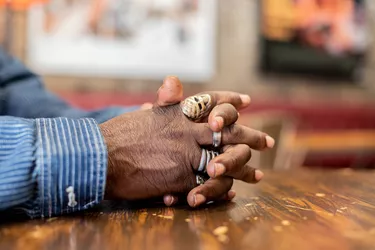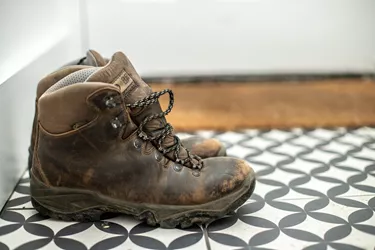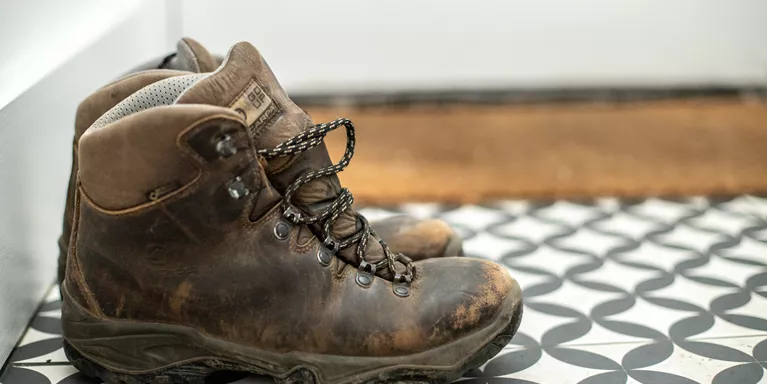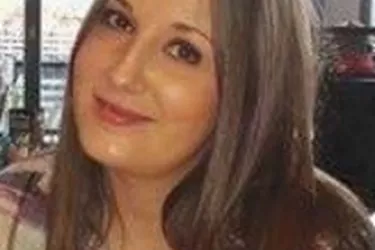Daniel's story
Daniel shares his experience of post-traumatic stress disorder (PTSD) and the resources that have helped him, both at work and outside of work.
I have worked for the ambulance service for just over a year as an emergency medical dispatcher (EMD).
The thing I like the most about this job is the interactions with the public. I also like belonging to the big Emergency Operations Centre (EOC) family. I know there are multiple colleagues I can talk to afterwards if I have any lingering feelings.
However the most challenging aspect of the role is also the public, who sometimes can be abusive. This thankfully isn't as frequent as people think.
Another challenging aspect is feeling open-ended after a call, after you've built a relationship with the person on the line. The call can end up playing on your mind.
My experiences with PTSD started last year. It is very difficult to predict what will come on the line when you hear the beep, and during a block of three days I was unfortunate to have a slew of traumatic calls.
The first day I had an unusual amount of calls from the police and relatives for deceased patients. Having these calls don't normally have such an impact on me, but this day they clung on and I couldn't shift them.
The next day the worst call came through. Baby. Not breathing. This is an EMD's worst nightmare. That night I found that I was restless and couldn't focus.
The next day, one of the first calls I received was a sexual assault. It immediately shook me up because of personal history and experiences. After the call, I froze. I took time out and went for air in the car park.
That night I couldn't sleep. I was agitated and anxious. I started to become emotional and irrational. I had never felt like this before and it was strange.
I ended up speaking to my supervisor, who put me in touch with a trauma risk management (TRiM) assessor. We had a chat, and I went home for a period of rest days. But the feelings continued to plague me.
When I came back to work for the next block of shifts, I couldn't even enter the building. I had to message a friend who was on shift and she came and met me outside. When I eventually did go inside, I couldn't speak; I felt so anxious and sick. I sat down at my desk and couldn't even put my headset on.
I asked to speak to a supervisor and he took me into an office so I could have some space. A different TRiM assessor then came to see me informally and tried to help me organise my thoughts. He had been an EMD himself, and understood what I was going through.
It's very easy to say that the first step is talking to someone about it, but this is the biggest and scariest step.
I ended up not taking any 999 calls for a week. I found myself losing my appetite and losing sleep. I could see the call in my head and hear the voices of the callers and patients. I constantly doubted if I could have done anything more on the calls.
It has been five months since this happened and I still get flashbacks of the call and a bubble of anxiety. However, after going through this process, I have developed my skill of identifying the warning signs. I intervene earlier and speak to family, friends and colleagues. I know the future is bright, and being able to cope better and identify the support early is the way forward.
It's very easy to say that the first step is talking to someone about it, but this is the biggest and scariest step. It really is stepping into the unknown, but remember that you are not the first one into that unknown.
There are many resources available and you may need to try more than just one. Personally I used two different resources. I spoke to a colleague (TRiM) and I used the Mind website for information on how I could help myself. The signposts were clear.
Not everyone feels they have someone they can easily talk to, so having a helpline with a stranger on the line may be the easiest thing for you.
If talking isn't your thing, sit down and write a letter to yourself, or share that with someone. This can help you see yourself from a different angle.
If you know someone experiencing PTSD, my advice would be to listen, not to judge, and to be there.
If you know someone experiencing PTSD, my advice would be to listen, not to judge, and to be there. If someone with PTSD has spoken to you about how they feel, they have made a huge step. Familiarising yourself with the options available can help you feel confident when listening. You don't need training to listen and be a support.
Being able to share the experience and start the journey to recovery with your colleague, friend or family member is a brilliant way to give someone with PTSD confidence in you.


Information and support
When you’re living with a mental health problem, or supporting someone who is, having access to the right information - about a condition, treatment options, or practical issues - is vital. Visit our information pages to find out more.
Share your story with others
Blogs and stories can show that people with mental health problems are cared about, understood and listened to. We can use it to challenge the status quo and change attitudes.

















